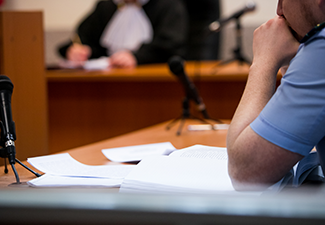Can Intoxication Be Used as a Valid Legal Defense?
Sept. 29, 2023
 Anyone who has ever been intoxicated as a result of alcohol or drugs can probably attest to the effect being in that state has on their decision-making abilities. An intoxicated person might say something to someone they ordinarily would not have or behave in a manner they would not were they sober. However, is intoxication a valid legal defense for committing a crime?
Anyone who has ever been intoxicated as a result of alcohol or drugs can probably attest to the effect being in that state has on their decision-making abilities. An intoxicated person might say something to someone they ordinarily would not have or behave in a manner they would not were they sober. However, is intoxication a valid legal defense for committing a crime?
At the Law Office of Joseph M Pacella, I represent only those accused of criminal offenses, and I use my previous experience as a prosecuting attorney to defend them. It is true that some of my clients were intoxicated when they violated the law. If you committed a crime while intoxicated in Springfield or throughout any of the communities in the central and western portions of Massachusetts, including Northampton, Westfield, Amherst, and Palmer, let’s see if you can use that fact as a legal defense.
Can I Use Intoxication as a Legal Defense?
There are some moving parts in your ability to use intoxication during the time of the crime as a legal defense when charged with it. The first is whether your intoxication was voluntary or involuntary.
Voluntary intoxication means you chose to become intoxicated. Because the law holds you responsible for your actions, including the decision to drink or take drugs, it will hold you to a different standard than if you were involuntarily intoxicated at the time of the crime.
Involuntary intoxication means someone forced or fooled you into that state. For example, they forced you to drink too much, gave you drugs without your knowledge or consent, or you unknowingly consumed something that reacted to a medication you were on at the time.
Because you did not choose to be intoxicated, involuntary intoxication is frequently used successfully as a legal defense. Whether voluntary intoxication can be used or not usually depends on intent.
How Does Intent to Commit a Crime Affect My Defense?
Intent is also relegated to two categories: general and specific. The combination of intent to commit the crime and intoxication are key.
General intent means you intended to take a certain action but did not seek a specific result. For example, you were angry with someone and threw a punch intending to hit them but not necessarily with an aim to hurt them.
Specific intent means you intended to take a certain action to achieve a specific result. For example, you started punching someone because you wanted to beat them up.
The type of intent, coupled with the type of intoxication, usually determines whether intoxication will be a viable legal defense. If someone is involuntarily intoxicated, it is likely they can have criminal charges dismissed even if they had specific intent because their judgment was affected by drugs or alcohol.
Someone who became intoxicated voluntarily with specific intent, for example, to kill someone, may still be able to use intoxication as a defense. However, such a defense will more likely yield a reduction in the charge rather than dismissal, such as a reduction from murder to manslaughter.
What Are the Limitations of an Intoxication Defense?
Particularly in cases involving voluntary intoxication, people will be held primarily responsible for their actions and therefore, are less likely to prevail with an intoxication defense. The law holds you first responsible for not becoming intoxicated and second, responsible for the actions you take while you are.
You may be wondering, “Can I use temporary insanity as a defense if I was intoxicated?” Perhaps.
The insanity defense arises from the presumption that a severe mental defect or disease renders someone incapable of controlling their actions. The law does not usually consider intoxication as a mental defect, but the court may consider evidence of intoxication as a mitigating factor in the commission of a crime. That factor could lead to lesser penalties for conviction.
Get the Support You Deserve
I have found that my clients’ actions are rarely black and white, but rather, shades of gray. I use those factors to their advantage if they create a viable legal defense. If intoxication, voluntary or involuntary, is a factor, we will explore opportunities to use it.
If you have been charged with a crime you committed while intoxicated, call the Law Office of Joseph M Pacella in Springfield, Massachusetts, now.
